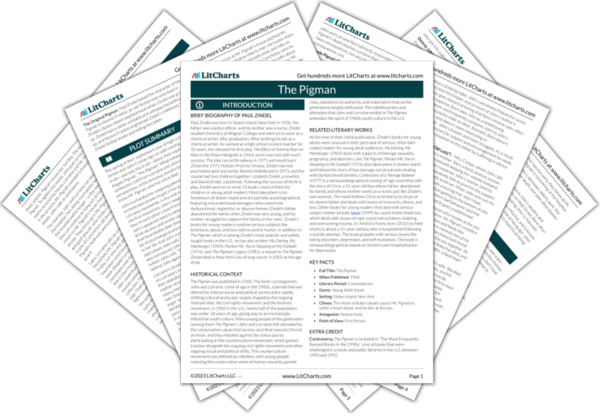Though it is of course difficult to raise a child—and especially as a single mother struggling to make ends meet—it’s unfair of Lorraine’s mother to put this on Lorraine, who is just a child. Like John, Lorraine doesn’t seem to get the emotional support she needs from a parent, and it’s clearly had a major effect on her. Lorraine’s mother’s suggestion that Lorraine skip her Latin test to stay home and clean further shows how Lorraine’s wellbeing isn’t Lorraine’s mother’s chief concern. And the effect of this is that Lorraine doesn’t feel comfortable opening up to her mother about anything personal, such as her dream of becoming a writer.


